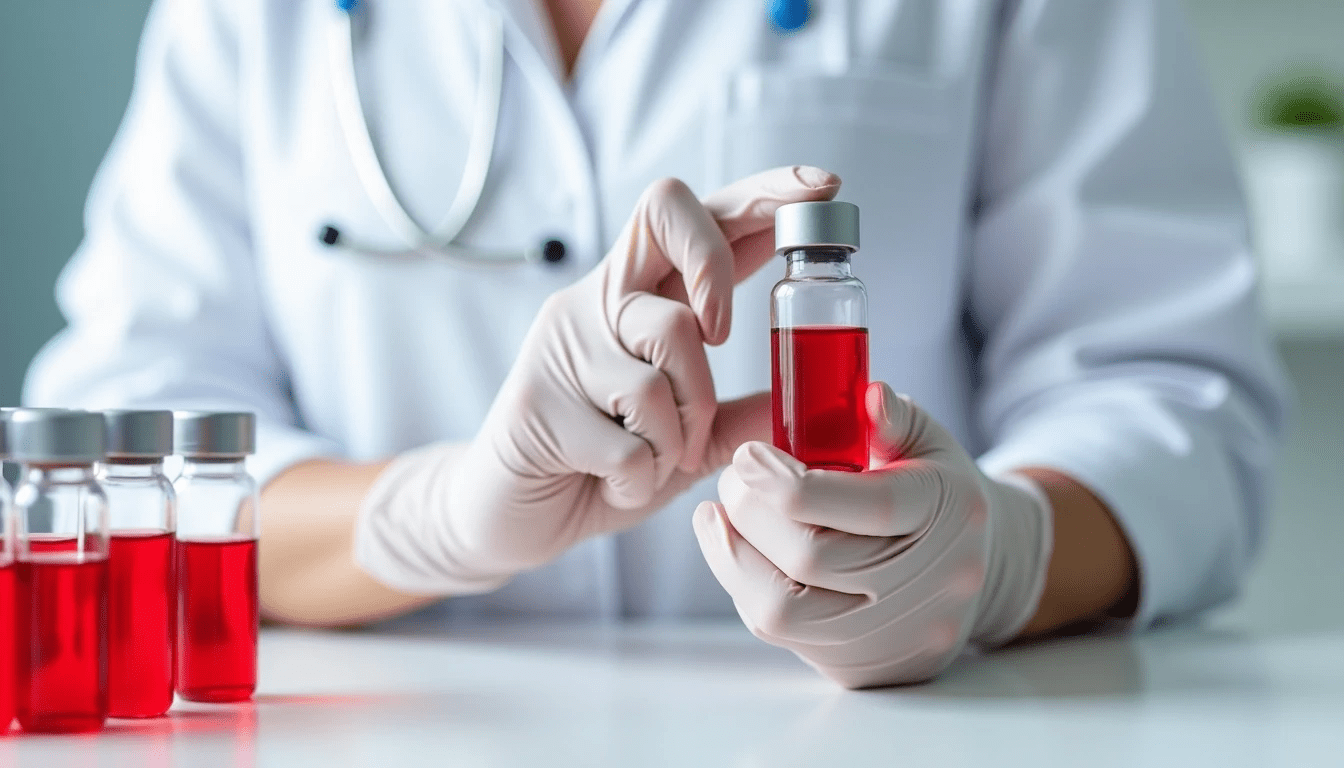Introduction
Blood tests are diagnostic tools used to assess overall health, identify the presence of a disease, and monitor the progress of a treatment. These tests assess numerous components including red and white blood cells, platelets, and biochemical markers, giving you clues about organ function and nutritional deficiencies. Regular blood tests can detect health problems early enough that treatment is more likely to be effective.
List of Routine Blood Tests: A Health Monitoring Guide
A routine blood test panel typically consists of:
- Complete Blood Count (CBC) — to assess the red blood cells, white blood cells, hemoglobin, and platelets.
- Also Read: Lipid Profile: Evaluates cholesterol levels as an indicator of heart disease risk
- Blood Sugar Test: Tests for diabetes or prediabetes.
- Liver Function Test (LFT): or also called a liver enzyme test.
- Kidney Function Test (KFT): Assesses kidney function using creatinine and urea levels.
- A Thyroid Function Test (TFT) is done to check the hormone levels to see if there is a thyroid disorder.
Electrolyte Panel: Sodium, potassium, and chloride levels for hydration and organ function.
Deciphering the Results of Your Blood Test
- Blood test results charts offer reference ranges that help in interpreting various test findings. Key indicators include:
- Hemoglobin: Normal value range: 13.8-17.2 g/dL (men), 12.1-15.1 g/dL (women)
- Total Cholesterol: Less than 200 mg/dL (ideal)
- Fasting Blood Sugar: 70-99 mg/dL (normal)
- Creatinine: 0.6–1.3 mg/dL (healthy kidneys)
- TSH (Thyroid-Stimulating Hormone): 0.4-4.0 mIU/L (normal thyroid function)
- White Blood Cell Count: 4,000-11,000 cells/µL (immune system health)
Blood Test: How to Prepare for It?
Proper preparation leads to proper results Steps include:
- Fasting: The MCHC test requires fasting for 8–12 hours before undergoing the test, while some certain other test may require fasting for 8 to 12 hours.
- Medication Changes: Let your doctor know about any medications, as they can impact results.
- Hydration: Drink water, as it will help make blood draw easier and will make it more comfortable.
- Avoid Alcohol and Caffeine: These can alter test results, so avoid them for 24 hours or more prior to the test.
Abnormal Blood Test Results: Common Reasons
Abnormal results could mean:
- High cholesterol: Heart disease risks.
- Hemoglobin low: Harbingers of possible anemia or blood disorders.
- Elevated liver enzymes: Damage or inflammation of liver.
- Point: High blood sugar — Possible diabetes
- White blood cell count that is too high or too low: Infection or immune condition. Follow-Ups are very essential to consult with a doctor to identify the reason.
How frequently should you have blood tests performed?
- Routine checkups: annually for general health assessment.
- Chronic conditions: Testing more often according to your doctor.
- A family history of risks: Having regular checks done for issues such as diabetes or heart disease.
- Medication monitoring: Routine tests if taking medications that influence organs such as the liver or kidneys.
- Specialized Blood Tests for Certain Health Concerns
- Some tests diagnose certain diseases:
- Diabetes: FBS and HbA1c tests.
- Heart Disease: Lipid profile and cardiac enzyme.
- Kidney Disease: Tests that measure creatinine and blood urea nitrogen (BUN).
- Infections: High-Sensitivity C-Reactive Protein (hsCRP) and Complete Blood Count (CBC). Getting tested early helps with managing conditions.
FAQs
Which test is the more critical blood test?
Among the most important blood tests to check your general health are a complete blood count (CBC) and metabolic panel.
How long does a blood test take to come back?
Results are variable but typically vary from a few hours to a few days depending on the type of test.
Can you have water before a fasting blood test?
Yes, unless specifically omitted from instructions, patients can drink water, which is desirable to prevent dehydration and assist in the blood draw.
What can I do if my blood test results are not normal?
See a doctor to get an interpretation and any follow-up tests or treatments that may be indicated.
Are all diseases detected in blood tests?
No, but they can be helpful for diagnosing many conditions. Other ailments need further imaging or specialist testing.


